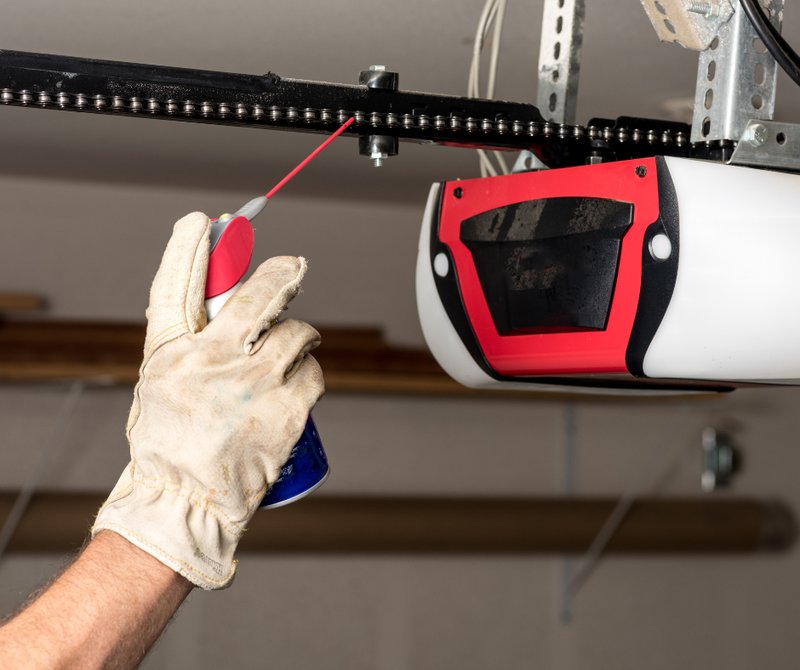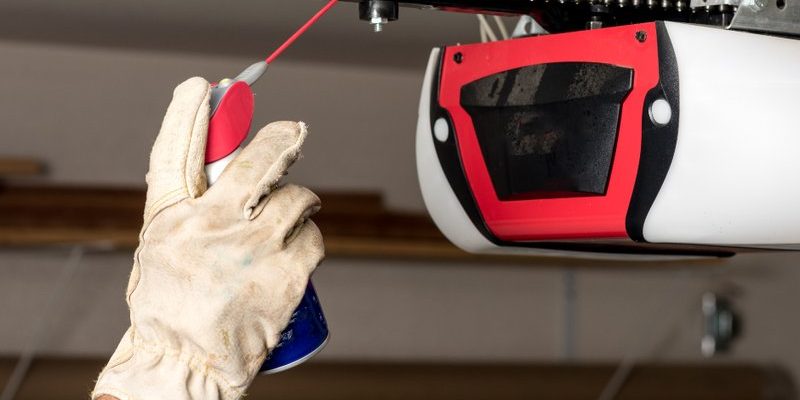
Humidity can lead to rust, malfunctions, and even limit the lifespan of your equipment. It’s not just about pressing a button and expecting everything to work; regular maintenance can help extend the life of your opener. Let’s explore how you can keep your garage door opener operating smoothly, even when the humidity is high.
Understanding the Impact of Humidity on Garage Door Openers
Humidity can be a sneaky culprit. While you might think it only affects things like your hair or paint, it can also wreak havoc on your garage door opener. High moisture levels can cause metal components to rust and electronic parts to malfunction.
When it’s humid, the air is filled with moisture, which can condense on your opener. This condensation can settle on sensitive areas, leading to corrosion—basically, metal breaking down. The last thing you want is for your opener to get stuck mid-cycle because moisture interfered with its operation.
Consider how humidity might affect the batteries in your remote too. If the batteries get too moist, they might leak or drain more quickly. Keeping an eye on how your garage door opener reacts to humidity is the first step to maintaining it.
Regular Inspection of Components
Just like you’d check your car’s oil regularly, you should inspect several parts of your garage door opener. Start by looking at metal parts such as the rails, the brackets, and the opener’s chain or belt. If you spot any signs of rust or corrosion, it’s crucial to act quickly.
Use a good-quality cloth to wipe these components down to keep them clean and free from debris. You might also want to apply a bit of grease to reduce friction, but make sure it’s suitable for humid environments. This is especially important for parts that open and close frequently—the smoother they operate, the less stress on the entire system.
If you’re unsure what to look for, take a few photos or videos of your opener while inspecting it. That way, you have a visual reference point for future checks. Trust me, regular inspections can save you from costly repairs down the line!
Keeping Electronics Dry
Your garage door opener relies heavily on electronic components, and humidity doesn’t do them any favors. It’s essential to keep these electronics dry to avoid any malfunctions. Using a weather-resistant cover can protect the motor and remote controls from moisture.
Also, consider adding some silica gel packets in the vicinity of the opener. These little moisture-absorbing packets can work wonders to keep the area dry. Place them in a corner of the garage or near the opener itself.
You may also want to invest in a dehumidifier if your garage tends to hold moisture. This will help create a less hospitable environment for humidity, making it easier on your garage door opener.
Lubrication is Key
Proper lubrication is crucial for any garage door opener, but it’s even more vital in high humidity areas. Think of lubrication as the oil for your engine. It reduces friction and helps parts move smoothly. You can use lithium grease for metal parts, and silicone spray works well for plastic components.
Make it a part of your regular maintenance routine to lubricate the moving parts every few months. Focus on the springs, hinges, tracks, and the chain or belt attached to the opener. A quick spray or dab with a cloth can go a long way in reducing wear and tear.
Here’s a tip: try to lubricate your garage door opener after a heavy rain or if you notice moisture in the air. This way, you’re actively combating any potential rust or malfunctions caused by humidity.
Remote Control Care
Don’t overlook the remote control for your garage door opener. If you live in a humid area, moisture can easily seep into the remote. To prevent this, ensure that the battery compartment is sealed well.
If you notice any corrosion on the battery terminals, clean them immediately. Use a small brush or a cotton swab dipped in vinegar to remove any buildup. Just remember to dry everything thoroughly before replacing the battery!
And while we’re on the subject, consider keeping a spare battery on hand. If you notice the remote acting erratically, it might just need a new battery. Switching out the batteries promptly can help keep your garage door operational without any hiccups.
Choosing the Right Garage Door Opener
If you’re in the market for a new garage door opener, think about weather-resistant models. Some openers function better in humid environments, so do your research or ask a professional for recommendations.
Look for models that offer features like moisture-resistant casing or specialized electronics designed for high-humidity areas. These small upgrades might be worth the investment to protect against potential humidity-related issues in the future.
Plus, many modern openers come with smart technology that can alert you to any unusual activity or problems. Connecting these systems to your smartphone keeps you informed in real time, so you can take preventive action before a small issue becomes a big one.
Weather Stripping for Additional Protection
Weather stripping adds an extra layer of defense against humidity. By sealing cracks and gaps in your garage door, you keep moisture from seeping in and affecting your opener. This is particularly vital if your garage has any cracks or openings that could let in humid air.
Consider using vinyl or rubber weather stripping to seal around the edges of the garage door. Such materials are durable and resistant to moisture, working hard to keep humidity at bay.
Inspect the weather stripping regularly, as it can wear down over time. If you notice deterioration, it’s time to replace it to ensure your opener remains protected against humidity.
Handling Humidity-Related Issues
Even with careful maintenance, problems can still crop up. If your opener starts to act erratically, it might be time to troubleshoot. Common issues include slow operation, strange noises, or complete failure to respond.
For a slow operation, check if any tracks are blocked or if the opener is struggling due to rust. Make sure everything is lubricated properly and free of obstructions.
If you experience strange noises, it could mean that components are rubbing against each other. Inspect for any loose or misaligned parts, and tighten as needed. If all else fails and you still can’t get it working, contacting a professional might be your best option.
Final Tips for Humidity Management
Finally, here are a few quick, actionable tips to manage your garage door opener in a humid environment:
- Regularly check for rust or corrosion.
- Keep a dehumidifier running in the garage.
- Use protective covers on electronics.
- Don’t forget to lubricate periodically!
- Seal any gaps or cracks with weather stripping.
By incorporating these practices into your routine, you can significantly improve the longevity of your garage door opener. Prevention is always better than cure!
In a humid climate, your garage door opener can encounter many challenges. But with some straightforward maintenance and careful attention, you can keep it operating smoothly. So grab that dehumidifier, inspect those components, and get ready to enjoy the convenience of a fully functional garage door opener, even in the stickiest conditions.
